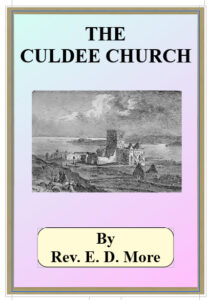ITS LITERARY AND HISTORICAL INTEREST. On the western coast of Scotland, near the “bold juttings of the Ross of Mull, lies a little island, only two and one-half miles long, by one and one-half broad, with but a few hundred acres of arable land,and nothing in its scenery or position to arrest the attention of the traveller. And yet of that bleak islet, Dr. Johnson, who never spake any thing good of Scotland that he could avoid, was constrained to write, “That man is little to be envied, whose patriotism would not gain force on the plains of Marathon, or whose piety would not grow warmer among the ruins of Iona”.[1]
There must have been something very marvellous in the history of a Scottish island, which would compel the burly dictator of English literature to place it, in relation to religion, beside Marathon in relation to patriotism. We may be very sure that only the undeniable truth of history could have extorted such a tribute from such a man.
What then has woven such a spell of interest around this storm-swept island in the Atlantic?Johnson himself gives it in the same passage when he says, “We were now treading that illustrious island, which was once the luminary of the Caledonian regions, whence savage clans and roving barbarians derived the benefits of knowledge and the blessings of religion.” Wordsworth also gives it, in his sonnets on this island, which he calls the “Glory of the West.”
